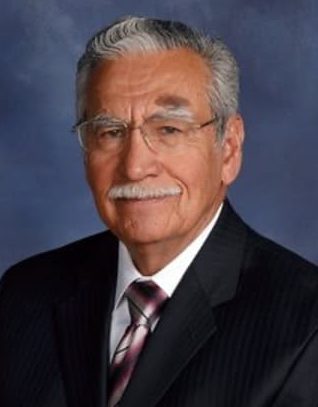Preaching a Book of the Bible
Estimated reading time: 8 minutes
Preaching through books of the Bible, called expository preaching, is a great way to teach Scripture as well as build up the Body of Christ (Acts 20:20, 27; 2 Timothy 3:16-4:4). It also comes with two compelling drawbacks. First, it usually requires a verse by verse exposition of the whole book. This is quite a challenge when it comes to the larger books in Scripture, such as the Major Prophets, the historical books, and even the Gospels and Acts. With it comes the challenge to make the sermons relevant and interesting, not an easy feat to accomplish.
The other drawback is that most preachers preach one sermon a week. Thus, they do not have the luxury of spending two years in the Book of Leviticus. We are not necessarily called to preach through every book of the Bible. But we are called to declare “the whole purpose of God” (Acts 20:27). One way to deal with these two drawbacks is to learn to preach a sermon series through books of the Bible. Here is a way to preach through books of the Bible and still maintain relevance in our preaching. Here I will lay down a format for preparing a sermon series for preaching through a book of the Bible and then show the value of this method.
THE FORMAT FOR A SERMON SERIES
1. Preach the Theme and Structure of the Book
Some people misunderstand expository preaching. They approach it more like an exegetical commentary on the book from the pulpit rather than a sermon explaining and applying the text of Scripture. Preaching involves explaining and applying the truth contained in Scripture. Every book of the Bible has an overarching theme or purpose for its writing. And it also contains some particular structure employed by the inspired writer. Our task is to identify both the theme and the structure. Then from these we can formulate a sermon series that systematically unfolds the theme of the book.
The entire Book of Romans can be preached in a three part series unfolding the theme of God’s provision of righteousness in the blessed Gospel (Romans 1:1-17). The book unfolds the theme by showing first, the need for righteousness (Romans 1:18-8:35), second, the rejection of righteousness by Israel (9:1-11:36), and thirdly, the display of righteousness in the true believer (12:1-15:13). Each of these three sections becomes a sermon series unfolding the truths given. We can thus explain the theme of the book without “losing the forest for the trees,” that is, without getting bogged down in the verse by verse explanation without the big picture in mind.
I recently preached through the book of Ecclesiastes by drawing on the overarching theme of “the futility of life under the sun.” Although the theme in Ecclesiastes is clear, the structure is not. Having preached the book in the past in a more verse by verse method over a prolonged period of time, I chose this time to preach a twelve part series entitled “How to Live Successfully in a Fallen World.” The goal was to address the Christian’s response to a decadent American culture. Every sermon in the series followed a particular obstacle given in each chapter and how we can overcome them by “living under the Son” (Jesus Christ).
2. Preach the Broad Themes in the Book
We can also preach a sermon series through a book of the Bible by identifying some broad themes in the book and then form a series of sermons based on these broad themes. The Gospel of John can be preached by forming a sermon series on the “Seven Confirming Miracles” (John 20:30-31), and/or a series on “The Seven I Ams,” and/or “The Seven Discourses of Jesus.” Thus we can unfold the person and work of Christ seen in the prologue and conclusion of the book (John 1:1-18; 20:30-31).
The same can be done for the Gospel of Matthew. Here we can develop the theme of Jesus Christ, the King and His kingdom (Matthew 1:1). The book of Matthew lends itself to a number of wonderful sermon series throughout the book. Some of these are “The Conduct of the Kingdom” (5:1-7:24), “The Proofs of Jesus as the Messiah” (8:1-9:38), “The Parables of the Kingdom” (13:1-52), “Christ’s Answers to Important Questions” (22:15-23:39), “The Second Coming of Christ” (24:1-25:46), and “The Greatest Events of All Time: The Death and Resurrection of Christ” (26:1-28:20).
3. Preach a Series on Specific Themes
A sermon series can also be formed on a specific theme found in a book. In the immediate context, a specific theme may be only a part of a whole — in light of other Scriptures, if it is an important doctrine repeated in various places, and is utterly relevant to the times, then it deserves a fuller treatment. Such was the case in my exposition of Matthew 19:1-15. The topic was the legitimacy of divorce (19:3). But I chose to create a sermon series on Biblical marriage since the topic is not treated in detail in Matthew. The distortion and destruction of marriage by the current culture demanded an explanation of Biblical marriage and family (Matthew 19:3-15).
I did the same for Matthew 20:17-28. There I preached a sermon series on “The Doctrine of the Atonement” or “Our Great Salvation” based on Matthew 20:28 which I called the most important verse in Matthew’s Gospel. Here we preached a four part series: “The Nature of the Atonement,” “The Extent of the Atonement.” “The Assurance in the Atonement,” and “The Example in the Atonement” (which was the main lesson of the verse). Hence we can still stay true to the exposition of the book. But we can also use a sermon series to not only explain the book, but also use a series to expand and apply a particular theme in the book.
The Value Of Preaching A Sermon Series Through A Book
1. Highlights the Major Doctrinal and Practical Themes
As was mentioned in the introduction, we need to teach all the important doctrines of Scripture. That means we need to preach through a good portion of the books of the Bible if we are to accomplish this task. So, we need to find a way to preach through the books in a manner that allows us to glean the truths found in each of the books of the Bible and yet do it in a wise and effective manner. A sermon series through some of these books is an excellent way to proclaim and apply God’s Word.
2. Provides an Expanded Treatment of Particular Themes
A sermon series can be used to expand a particular theme mentioned in a book but not developed since that was not its overall purpose. Some books may mention the return of Christ but not develop it. Hence, we can expand the treatment of the subject as we preach through the book. Many of the New Testament epistles are an expansion of the person, work and words of Christ. Hence any exposition of the Gospels and Acts will need expanded treatments of the truths they contain. Thus, a series to further explain and apply what is described. An exposition of Proverbs changes after chapter nine and calls for a sermon series on various topics listed in the rest of the book. One quickly realizes that explaining the list of proverbs one by one does not constitute expository preaching. It demands rearranging them into a sermon series.
3. Maintains Interest
Some books in the Bible do not lend themselves to a systematic verse by verse style of preaching which is both relevant and interesting. Think of the Major Prophets, the historical books of Kings and Chronicles, the wisdom literature of Job, Proverbs, and some Psalms. The challenge of every preacher is to make the Bible live, by making it relevant and interesting. By identifying important themes in the books, and then arranging a sermon series on these themes not only helps maintain interest but also shares the relevant truths in the book.
4. Encourages Attendance
The days are long gone when people came to church because it was the thing to do (see Hebrews 10:24-25). People today come if they think the sermon is something they need. All Scripture is truth which results in moral action but not everyone sees it and some don’t care. A sermon series can excite people to come to church to see truth relevant to their lives. It can be an entry point to new comers and even to unbelievers. We can show how Scripture speaks to us today.
5. Provides For Regular Breaks
Expository preaching calls for careful selection in what books to preach. Some books are short and easy to preach. Others are longer and call for months and even years to explain. Here is where a sermon series is helpful. It provides a cutoff point where the preacher can pause in the exposition. Then, he can make room for the other seasons in the Christian calendar such as Christmas and Easter, as well as the seasons in the culture like vacations and school breaks. In some areas of our country members leave for a protracted period of time (like “snow birds” in cold states). It makes room for the pastor’s vacation and sabbatical. It also makes room for the yearly themes that every pastor needs to address: missions, ministry involvement, money, and marriage. These need yearly exhortations, usually more than one sermon for each.
It is said that there are no “killer sermons” which deal a once-for-all blow upon the listener. Effective preaching which matures believers is usually done by a series of sermons on a particular topic. It is like driving a nail into a board. It takes a number of hammer blows to drive a nail into its place. It’s the same with maturing God’s people. It takes a sermon series to drive home a particular theme. Hence the value of preaching a sermon series through a book of the Bible.
© 2025, Alex Montoya. All rights reserved. Used by permission.
About The Author

Alex Montoya
Alex D. Montoya is the senior pastor at First Fundamental Bible Church in Whittier, Calif. He is the author of the book, Preaching with a Passion.









